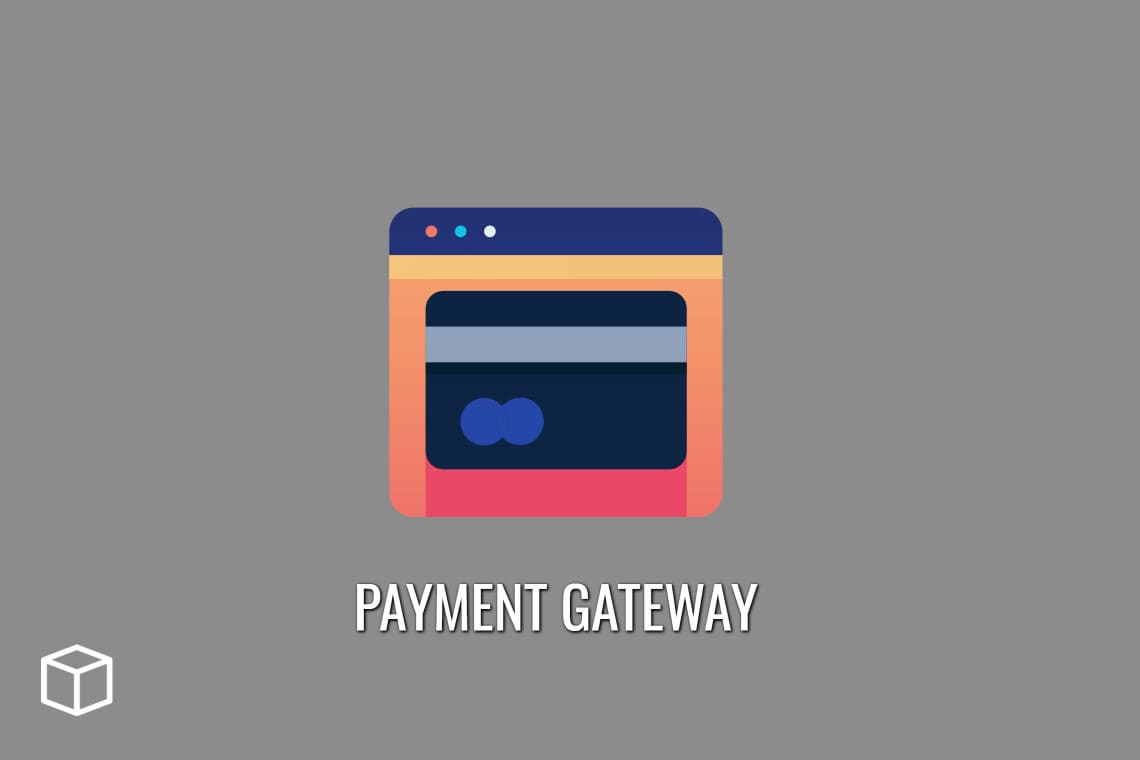A payment gateway is an electronic means of transferring money between a buyer and seller.
It is meant to authorize, capture, store, and sometimes later authorize the merchant’s payment.
The purpose of the payment gateway is to decrease the chances of fraud on both sides of the transaction by either assuming liability or providing authentication.
In this article, you will learn about a payment gateway in detail and how does it work.
What is a Payment Gateway?
A payment gateway facilitates payments for merchants, traditionally on e-commerce websites.
It is used to connect the merchant with the bank or service providers, who traditionally handle the transactions between banks, credit cards, and customers.
The most common way of connecting a merchant with a payment gateway is through an API that an e-commerce provider will integrate into their site.

Payment gateways are typically managed through software provided by third parties such as Stripe or PayPal.
Many gateways also offer consulting services to set up the business process integration between the customer’s shopping cart system and their own systems.
This is not always required but helps merchants understand what they need to do in order to accept electronic payments over the web.
A payment gateway is often referred to as an e-commerce gateway or payment service provider (PSP), which can cause confusion with the term.
Many payment gateways limit the number of transactions allowed per minute, because each transaction costs them money.
A transaction could be processed through a credit card or directly from a bank account. A transaction typically costs about 5% of the total amount to process.
The Payment Card Industry Security Standards Council recommends that all payment cards use strong cryptography with a secure SSL connection to encrypt cardholder data, during both transmission and at rest.
This decreases the number of potential attack vectors for criminals wishing to steal valuable information or money from merchants or consumers. Most payment gateways now offer this type of encryption to merchants, so the actual PCI compliance is on the merchant website.
Transaction rules are implemented using various scripting languages. Some scripts may be executed during service initialization while others are run as transactions occur.
These scripts allow merchants to authorize transactions according to their own criteria rather than accept or deny all transactions within the payment gateway. A penniless customer can therefore be allowed to return their purchase, while a customer that hasn’t filled in a required field will have a transaction rejected.
The scripts allow merchants to implement “rules” on transactions being processed which includes information about how the payment is made and the cardholder information being used for this transaction.

On this basis, merchants can set rules to accept or decline transactions. Some of the most common scripting languages used for payment gateways are Perl and PHP.
A transaction engine is responsible for all communication between a payment gateway and the credit card associations (Visa, MasterCard, Amex etc.)
It consists of an asynchronous job scheduler responsible for submitting jobs to the associations and processing results received from them.
This is necessary for transactions that need verification before processing, such as those using a credit card.
The association then returns a response containing the cardholder’s billing information and transaction status that gets processed by the transaction engine.
A payment gateway can process payments made directly by customers with bank accounts or payment cards and also offer services to allow merchants to accept payments from customers with bank accounts.
What is the Role of a Payment Gateway?
A payment gateway is a service that authorizes payments online. Payment gateways typically provide the businesses that use them with a secure connection to a customer’s bank.
They are responsible for encrypting and decrypting the data sent between a customer’s browser and the business’s server.
Most payment gateways also generate a unique token that acts as an identifier, enabling the business to identify each customer without storing their financial information itself.
How does a payment gateway work?
To understand how a payment gateway works, you have to break the process of making a purchase into three steps.
The first step is when your customer selects a product or service that they want to buy from a merchant’s website.
The second step is when the buyer enters their payment information and puts in an order for their purchase.
In the third and final step, the buyer sends their payment details over to the seller’s website, which means that buyers will have to trust that sellers use secure technology so that their credit card numbers cannot be intercepted by third parties.
Once the merchant receives the buyer’s payment information, then they can ship out their product to their customer. If this process sounds complicated, that’s because it is!
How a payment gateway keeps information secure?
A payment gateway is a software that allows cardholders to securely submit credit card details, as well as other information such as logins and passwords.
In order to fulfill the terms of the agreement with their customers, payment gateways have put in place certain security standards that they have to maintain.
The standards range from data protection and safety standards to fraud detection standards.
Benefits of using a payment gateway
For those of your that are interested in adding a payment gateway to their website or app, you can find that there are many benefits of doing so. A payment gateway facilitates the process of e-commerce transactions and payments through various modes of online and mobile payments.
When you are running a business in today’s modern world, it is extremely important to keep up with the times. The days when you can rely on your brick-and-mortar store alone are long gone. Now, savvy entrepreneurs know that hard work and effort goes into attracting the right kind of customers online. Many people nowadays prefer using their mobile devices more than their laptops, and it is important to make sure that you are ready for this transition.
With Good’s new payment gateway, you can easily let your customers pay the way they want to pay, whether that be through e-wallet or even used gift cards. Making this type of payment service available on your website will help you stay ahead of the curve and ensure your business keeps up with changing times – and growing profits.
Why You Need a Payment Gateway for Your Business
Creating a gateway for payments for your business is one way to ensure that you can accept payment from customers. It’s also helpful because it allows you to lessen the risk of credit card fraud.
How to choose a payment gateway
So, what payment gateway should you use for your business?
A wide variety of payment gateways are available to help you manage the transactions on your website. It is important to review features, fees, and compare the different options before selecting one that may work best for you.
The first thing is to determine the type of information that is needed about your customers. If you need certain information like phone numbers or mailing addresses, then this would dictate which gateway is best.
If it’s not important, then the next step would be looking at the fees associated with each option. Are there monthly charges? Transaction charges? Are there any setup fees?
Other features are also worth considering, such as how many currencies are supported and whether or not the credit card information is stored.
The right payment gateway can make a big difference to your business, particularly in terms of saving you money and time processing transactions.
Fees for accepting credit cards generally range from 0.5% to 4%, but many providers offer marketing programs that can help recover these costs. In addition, their expertise with security should minimize the risk of theft or fraud.
Types of payment gateways
There are many different types of payment gateways. Direct bank transfer is one type of payment gateway, and it must be set up with the merchant’s bank account.
Another type is credit card payment gateways that process transactions through a major credit card company, like Visa or MasterCard. Lastly, there are third party service providers, like PayPal, which offer merchant services for online payments.
Direct Bank Transfer Payment Gateway
This type of payment gateway allows customers to use their bank account to send money directly to the merchant.
This is often the least expensive option for merchants because there are no middlemen involved. However, it can take up to three business days before a customer’s funds will be available in the merchant’s account.
To increase the chance of a successful transaction, merchants offering this option must explain to customers that it will take 3-5 business days for their money to appear in the merchant’s account.
Credit Card Payment Gateway
This type of payment gateway allows customers to pay with major credit cards like Visa and MasterCard.
These transactions can happen instantaneously, but merchant accounts with credit card gateways can be expensive.
This is because the payment gateway company takes a small percentage of each transaction and then passes the rest to the merchant’s bank account.
Most major banks do not offer this type of payment gateway, so merchants requiring this option may need to sign up for a third party service provider, like PayPal.
Third Party Payment Service Provider (PSP)
A third party payment service provider is not the same as a direct bank transfer, but it shares one similarity: once the customer has paid for their product, the merchant will receive the money directly into their bank account.
PayPal is probably the most well known PSP. Sellers that use PayPal can request money from anybody with an e-mail address, making it one of the most popular payment options on eBay.
Most Popular Payment Gateways
- PayPal
- Stripe, Inc
- Google Wallet (E-Wallet)
- Square
- Amazon Payments
How secure is the payment gateway?
The payment gateway is secure. It uses SSL encryption to protect the data while it’s being transferred between your computer and our server. If you see an “https” in the URL, that means your connection to our servers is encrypted.
The payment page containing credit card details is delivered directly to the Internet browser by our server. No one can access or tamper with it.
The data is encrypted using SSL (Secure Sockets Layer) 128-bit encryption and never actually touches your computer, making it impossible for anyone to steal your data as it’s traveling over the internet.
Payment Gateway Terms
Payment gateway – an intermediary that authorizes transactions between your account and an end-user’s account
Authorization – to approve or validate a transaction before it is finalized
Authorize – to approve or sanction a specific charge
Chargeback – process in which financial institutions (credit card companies and online payment providers) return funds associated with an unauthorized transaction to the payer’s account.
Acquiring bank – An acquiring bank is a bank that facilitates an electronic transaction for its card-issuing customer. The acquiring bank receives the electronic authorization request from the merchant or other terminal, and sends it to the card issuer.
PCI DSS Compliance – PCI DSS compliance is a set of security requirements that focuses on protecting credit card holder data from being stolen by cyber thieves. The PCI DSS stands for the Payment Card Industry Data Security Standard, and it is a set of 12 requirements drawn up by the Payment Card Industry Security Standards Council to which every business has to comply.
What is Payment Gateway Charges
The payment gateway charges are the fees that you will be charged each time you process a transaction through your payment gateway.
The rates and costs of the payment gateways change over time and can vary depending on the type of merchant (business) account you have, the processor’s pricing structures and the country where your business is located.
Depending on your business situation, there may also be other fees involved in using a work gateway such as PCI Compliance fees, fraud prevention costs and chargebacks.
Who needs a payment gateway?
Any company that has a website and accepts payments from people.
You Might Also Like
- What is Machine Learning and how does it work?
- What is Artificial Intelligence and how does it work?
- What is Open Source Software and how does it work?
- What is a Domain Name and how does it work?
- What is Big Data and how does it work?
- What is Google Cloud Platform?
- What is Internet of Things and how it works?
- What is VoIP and how does it work?
- What is API and how does it work?
- What is Coding and how does it work?





